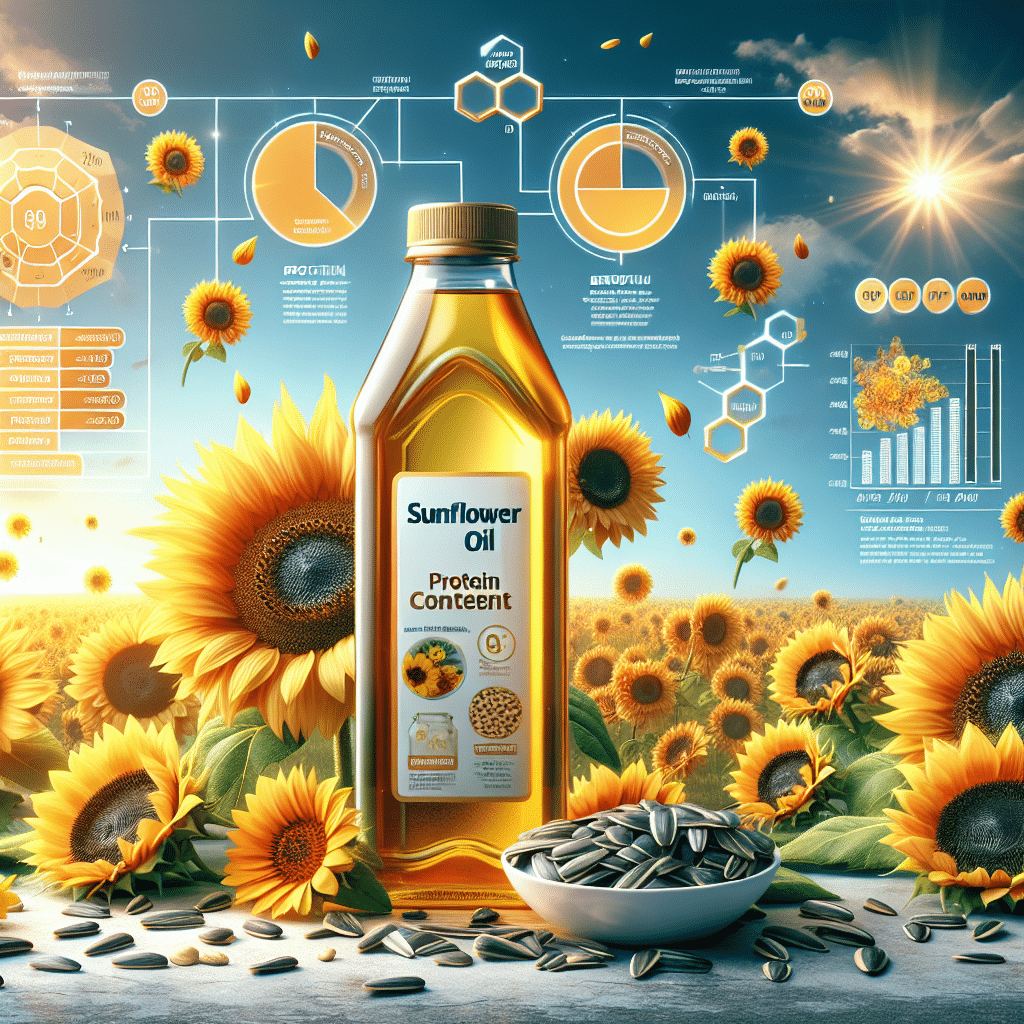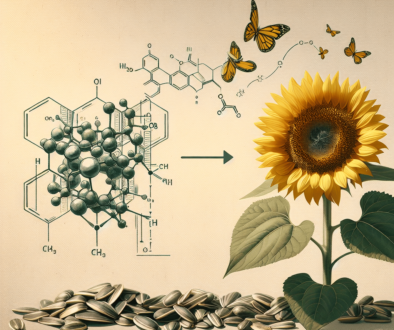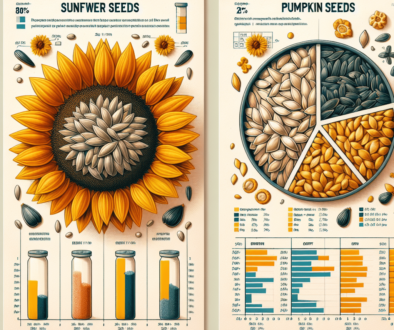Sunflower Oil Protein Content: What You Need to Know
-
Table of Contents
- Sunflower Oil Protein Content: Essential Insights and Benefits
- Understanding Sunflower Oil: A Nutritional Overview
- The Composition of Sunflower Oil
- Protein Content in Sunflower Oil
- Protein in Sunflower Seeds: A Closer Look
- Nutritional Profile of Sunflower Seeds
- Protein Quality and Digestibility
- Health Benefits of Sunflower Seed Protein
- Supports Muscle Health
- Enhances Immune Function
- Promotes Heart Health
- Contributes to Weight Management
- Comparing Sunflower Seed Protein to Other Protein Sources
- Animal vs. Plant Proteins
- Protein Content in Common Foods
- Incorporating Sunflower Seed Protein into Your Diet
- Conclusion: The Role of Sunflower Oil and Seeds in a Protein-Rich Diet
- Discover ETprotein’s High-Quality Protein Products
Sunflower Oil Protein Content: Essential Insights and Benefits

Sunflower oil is widely recognized for its health benefits and culinary applications. However, the protein content in sunflower oil is a topic that often goes unnoticed. Understanding the protein content and the nutritional profile of sunflower oil can help consumers make informed dietary choices. This article delves into the protein aspect of sunflower oil, its implications for health, and how it compares with other sources of dietary protein.
Understanding Sunflower Oil: A Nutritional Overview
Sunflower oil is extracted from the seeds of the sunflower plant (Helianthus annuus). It is a non-volatile oil commonly used in food preparation for frying, baking, and as a salad dressing. The oil is appreciated for its light taste, frying performance, and health benefits, particularly its fatty acid composition.
The Composition of Sunflower Oil
The primary components of sunflower oil are fats. It is rich in polyunsaturated and monounsaturated fats, with low levels of saturated fats. The predominant fatty acids in sunflower oil are linoleic acid (an omega-6 fatty acid) and oleic acid. The oil also contains vitamin E, which acts as an antioxidant.
Protein Content in Sunflower Oil
Contrary to what some may believe, sunflower oil does not contain protein. The process of oil extraction removes protein and other components from the seeds. The resulting product is almost entirely composed of fat. However, the sunflower seeds from which the oil is derived are a good source of protein.
Protein in Sunflower Seeds: A Closer Look
While sunflower oil itself lacks protein, the seeds are a different story. Sunflower seeds are a nutritious snack and a valuable addition to various dishes, providing a significant amount of protein.
Nutritional Profile of Sunflower Seeds
- Protein: Sunflower seeds are a good source of plant-based protein, which is essential for muscle repair, immune function, and overall health.
- Fiber: They are high in dietary fiber, which aids in digestion and can help maintain a healthy weight.
- Vitamins and Minerals: Sunflower seeds are rich in vitamin E, B vitamins, magnesium, selenium, and other essential nutrients.
- Fats: The seeds contain healthy fats that are beneficial for heart health.
Protein Quality and Digestibility
The protein in sunflower seeds is of high quality, containing essential amino acids necessary for the body’s functions. The digestibility of sunflower seed protein is also favorable, making it a valuable protein source for vegetarians and vegans.
Health Benefits of Sunflower Seed Protein
Consuming sunflower seeds as part of a balanced diet can offer several health benefits, primarily due to their protein and nutrient content.
Supports Muscle Health
Protein is crucial for muscle maintenance and growth. The amino acids in sunflower seed protein can help repair muscle tissue and support muscle health, especially after exercise.
Enhances Immune Function
The nutrients in sunflower seeds, including protein, play a role in supporting the immune system. Adequate protein intake is essential for the production of antibodies and immune system cells.
Promotes Heart Health
The healthy fats in sunflower seeds, along with their protein content, contribute to cardiovascular health by helping to lower cholesterol levels and reduce the risk of heart disease.
Contributes to Weight Management
Protein-rich foods like sunflower seeds can increase satiety, helping to control appetite and support weight management efforts.
Comparing Sunflower Seed Protein to Other Protein Sources
When it comes to protein sources, it’s important to consider variety and balance. Sunflower seed protein is just one of many options available.
Animal vs. Plant Proteins
Animal proteins, such as those from meat, dairy, and eggs, are considered complete proteins because they contain all essential amino acids. Plant proteins, like sunflower seed protein, may lack one or more essential amino acids but can still be part of a complete diet when combined with other protein sources.
Protein Content in Common Foods
Here’s how sunflower seed protein stacks up against other common protein sources (per 100g serving):
- Chicken breast: 31g of protein
- Lentils: 9g of protein
- Almonds: 21g of protein
- Sunflower seeds: 21g of protein
While sunflower seeds are not the highest source of protein available, they are competitive with other plant-based proteins and offer additional health benefits.
Incorporating Sunflower Seed Protein into Your Diet
There are many ways to include sunflower seeds and their protein content in your diet. Here are some ideas:
- Add sunflower seeds to salads, yogurt, or oatmeal for a protein boost.
- Use sunflower seed butter as a spread on toast or in smoothies.
- Include sunflower seeds in homemade granola or energy bars.
- Snack on roasted sunflower seeds for a satisfying, protein-rich treat.
Conclusion: The Role of Sunflower Oil and Seeds in a Protein-Rich Diet
While sunflower oil itself does not contain protein, sunflower seeds are an excellent source of this vital nutrient. Incorporating sunflower seeds into your diet can provide numerous health benefits, including muscle maintenance, immune support, heart health, and weight management. By understanding the nutritional profile of sunflower seeds and oil, consumers can make informed choices that contribute to a balanced and healthy diet.
Discover ETprotein’s High-Quality Protein Products
If you’re looking for a reliable source of plant-based proteins, ETprotein offers a range of products that can meet your needs. Their sunflower seed protein is just one of the many high-quality options available, providing a neutral taste and allergen-free attributes suitable for various applications.
About ETprotein:
ETprotein, a reputable protein Chinese factory manufacturer and supplier, is renowned for producing, stocking, exporting, and delivering the highest quality organic bulk vegan protein and plant proteins. They include Organic rice protein, clear rice protein, pea protein, clear pea protein, pumpkin seed protein, sunflower seed protein, mung bean protein, etc. Their offerings, characterized by a neutral taste, non-GMO, allergen-free attributes, cater to a diverse range of industries. They serve nutraceutical, pharmaceutical, cosmeceutical, veterinary, as well as food and beverage finished product distributors, traders, and manufacturers across Europe, USA, Canada, Australia, Thailand, Japan, Korea, Brazil, and Chile, among others.
ETprotein specialization includes exporting and delivering tailor-made protein powder and finished nutritional supplements. Their extensive product range covers sectors like Food and Beverage, Sports Nutrition, Weight Management, Dietary Supplements, Health and Wellness Products, and Infant Formula, ensuring comprehensive solutions to meet all your protein needs.
As a trusted company by leading global food and beverage brands and Fortune 500 companies, ETprotein reinforces China’s reputation in the global arena. For more information or to sample their products, please contact them and email sales(at)ETprotein.com today.














